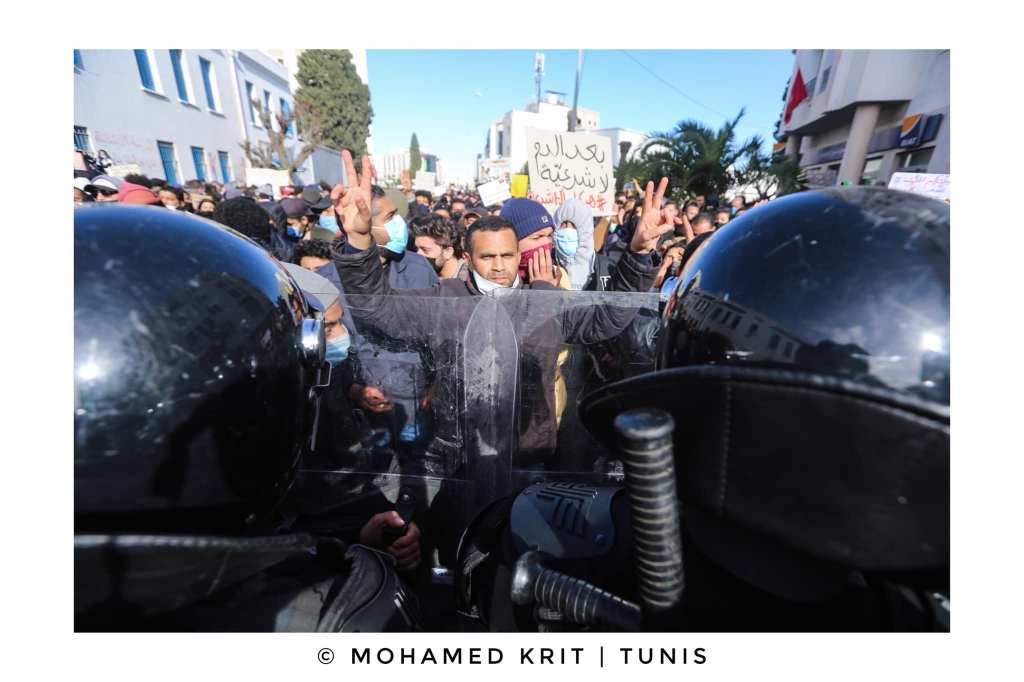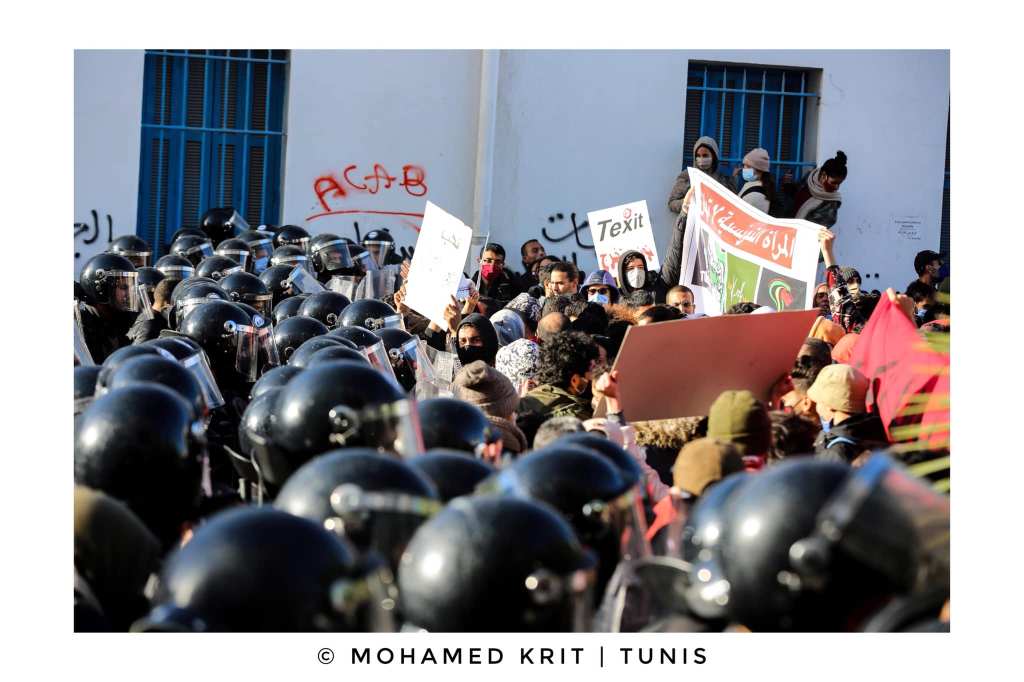in via di traduzione
Tunis January the 26th: Confidence vote for the government reshuffle, parliament besieged by young people from popular neighborhoods and opposition movements, repression and arrests.

On January the 26th, a symbolic date for the opposition movement since it is the anniversary of the 1978 uprising, in conjunction with a plenary of parliament to vote for confidence in a government reshuffle, the opposition movement that for over 10 days fills the squares of the country has called a
demonstration focusing on the proletarian district of Ettadhamen, the scene of riots these nights, in the direction of Bardo, the district where the parliament is based. At the same time, a sit-in was held right in front of the parliament. The procession consisting mainly of young people and inhabitants of the proletarian neighborhoods of Ettadhamen and Mnhila should have joined with the sit-in in front of the parliament formed predominantly by students and youth politically active in the central districts of the capital.This day of rage, as it was called, represented the first conscious attempt to merge the two moments of the anti-government protest movement of these days: the mass and proletarian one of the periphery (not only from the city but from the most marginalized regions of the country) and that of the youth of the opposition. militant and framed in parties and organizations of the revolutionary and student left.
Once again the Mechichi government responded with repression: every single street leading to the square in front of the parliament was cordoned off and manned by hundreds of policemen and dozens of armored vehicles, even the entrances to the neighborhood within a radius of two kilometers were closed and garrisoned by vehicles equipped with water cannons, even from within the parliament some Social Democratic deputies as well as a liberal from a party of the ruling coalition expressed their complaints about a session held in a “parliament transformed into a besieged barracks”.
But the interior ministry has focused
most of its forces on an intersection along the 4 km freeway connecting
Ettadhamen to the Bardo which was heavily manned with the aim of not
letting the demonstration leave the borders of the district and not
letting it reach the young people in front of parliament.
Despite the
great participation in both the march and the sit-in, the huge
deployment of men managed to stop the march, not without a fierce
opposition, while at the Bardo the young people who tried to break
through the police cordon to reach the parliament square, 50 meters
ahead, once again they were loaded and targeted with tear gas. VIDEO

The day of mobilization, however, ended in the heart of the capital: in fact, some of the demonstrators from both the march and the sit-in reached the center in small groups where they reassembled a few hundred meters from Avenue Bourguiba but also here the presence large numbers of police forces rejected and dispersed the young people.
On the same day, the funeral of the young Haykel Rahchdi the first martyr’s movement, who died after being hit in the face by a tear gas canister fired by the police, was held in the town of Sbeitla, 250 km from the capital, the funeral was attacked with charges and tear gas, reigniting the revolt in the city throughout the day and until late at night.
On the whole, the day of January the 26th showed a strong determination on the part of young Tunisians, often adolescents and who have not experienced the 2010-2011 Uprising, to take back the streets, not to retreat or be frightened by the police intimidation by expressing the will to bring down the system or the government and reactionary opposition to it.
Their slogans full of anger and yearning for social gains and freedom and, once again for the liberation of the 1.500 youth arrested in the last days, show once again that in post-revolt Tunisia the restoration of a police regime in the form of parliamentary democracy is underway, who still speak of “democratic transition” in good faith he should “go to school to the masses”.








Nessun commento:
Posta un commento